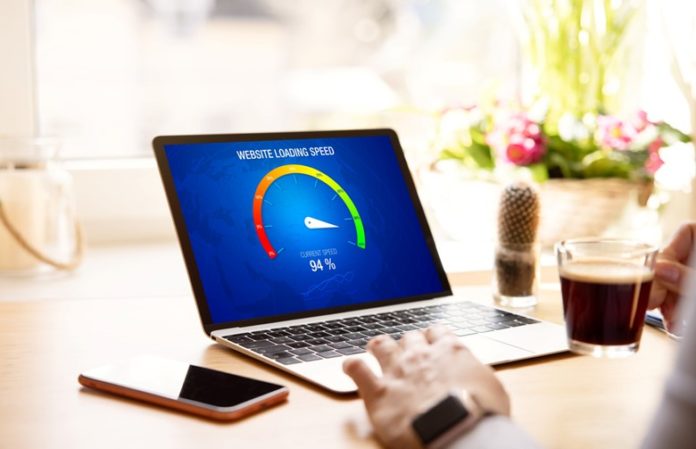We’ve all been there — you’ve purchased a brand new computer that works like a charm. You get used to quick loading speeds, excellent performance, and then all of a sudden…uh oh! Your once top-performing PC or laptop is now sorely lagging, leaving you with speeds that drive you absolutely bonkers. Unfortunately, all computers will inevitably experience slower speeds at some point in their life cycle. Could this be due to planned obsolescence? Perhaps. But it could also be due to various other factors, including an outdated operating system, unnecessary files and software, and so much more.
Thankfully, we’re here to take the guesswork out of figuring out why your computer is underperforming. If your computer speed is leaving much to be desired but you don’t want to spend thousands of dollars on a new one, you’ll want to stick around for the rest of this article. Today, we share 6 simple ways to improve your computer’s speed and overall performance, so read on to find out more!
1. Install An Ad Blocker
The first thing you can do if you notice that your computer is struggling with loading speeds and performance is to install an ad blocker on your internet browser. Those annoying ads you come across online are well known for making web pages slow to a crawl, and few things are more frustrating than when you notice a website loading slowly. Additionally, you could even fall victim to malware if you accidentally click on an infected ad or even just by visiting a website that is home to a corrupted ad, resulting in a lot more problems than just a slow computer.
Contrary to popular belief, an ad blocker will not affect the overall performance of your computer, as it is simply a browser extension and cannot affect anything outside of the browser. So, if you’re looking to both speed up your browsing and protect yourself from viruses, look no further than a simple yet incredibly effective ad blocker.
2. Limit Programs That Startup Automatically
Did you know that there are a wide number of programs such as Adobe Photoshop, Spotify and Skype that automatically start whenever you turn on your computer? These are called startup programs. Unfortunately, programs that load as your computer starts up remain active in its memory. Consequently, they are one of the main causes of a slow boot laptop or PC. To save your computer’s resources, avoid enabling startup programs unless you actually need them when logging in.
Thankfully, it’s all too easy to determine and customise which applications run when your PC or laptop boots up:
Windows Users:
- Access Task Manager by pressing Ctrl-Shift-Esc on your keyboard.
- Select the “startup” tab.
- To make an adjustment or disable an enabled app, simply uncheck the checkbox and click apply.
- Restart your computer for changes to be applied.
MAC Users:
- Click the Apple menu in the top-left corner of your screen and select System Preferences. Then choose Users & Groups.
- Select the Login Items tab to see your list of startup programs.
- Choose a startup program to remove and click the minus button to clear it from the list.
3. Uninstall Unnecessary Software
If your computer is getting up there in age, you may be surprised to find out that there are numerous old, unused programs and software that are hiding on your hard drive. Generally, all computers come preloaded with a number of different applications that many people won’t use but that can eat up precious system resources. Unsurprisingly, having too many programs running in the background can slow down your computer and negatively impact its performance.
With this in mind, deleting unnecessary software and programs can help improve the speed and efficiency of your computer. To clear the clutter and boost your computer’s speed and performance, we recommend visiting your “Programs and Features” menu to see a full list and uninstall anything you don’t use regularly.
4. Clean & Delete Old Files
Just as important as deleting unnecessary programs and software is paying attention to the old files, photos, videos and more that may have accumulated on your hard drive over the years. Too much clutter on your hard drive not only consumes valuable space – it means your computer has to work harder to find the files you do need. Are you still storing old pictures from your high school formal event or camping trip from over a decade ago? If so, now is the perfect time to either delete these files or transfer them to an external hard drive for safekeeping.
Alternatively, consider relocating your files to cloud storage options such as Google Drive or Dropbox. If you are using Windows, Disk Cleanup is an incredibly helpful tool you can use to free up space on your hard disk, creating improved system performance.
Learn more about how to free up storage space on a Mac computer here.
5. Upgrade Your RAM
Before we get into why you should consider updating your RAM, let’s look at exactly what the term “RAM” even means. RAM stands for random access memory, and it’s one of the most fundamental elements of computing. Essentially, it is your computer’s short-term (volatile) memory, which means that it only retains data as long as your computer is powered on. When you turn off your computer, the data stored in RAM is lost. The amount of RAM in a computer determines how many programs and applications it can run simultaneously and how quickly they will run.
One of the easiest and most straightforward ways to improve the speed of your computer is to upgrade your RAM. Simply adding an extra 2 to 4 gigs of RAM space is often enough to make a noticeable difference. If you are a gamer, digital artist or multimedia creator, you could even go up as high as an additional 32GB for ultimate system performance.
6. Check For Viruses & Spyware
Last but not least, checking your computer for viruses and spyware plays a critical role in how well your computer is running in terms of speed and performance. If your computer is slowing down suddenly and crashing on a frequent basis, it might be the result of malware symptoms that have gone undetected in your system. To help safeguard your computer, it is important to ensure you have current anti-virus software that is activated, on top of following good digital security practices while online.
Top Tip: Do note that there can be compatibility issues if you’re downloading free antivirus software, so be sure to double-check everything before installing. This will help to ensure you don’t run into additional performance problems that further slow down your PC.
________________
And there you have it — 6 user-friendly tips that are guaranteed to improve your computer’s speed and performance in no time. These minor adjustments may not seem like much in the beginning, but combined they can make it possible to keep your computer faster and more functional for many years to come.




